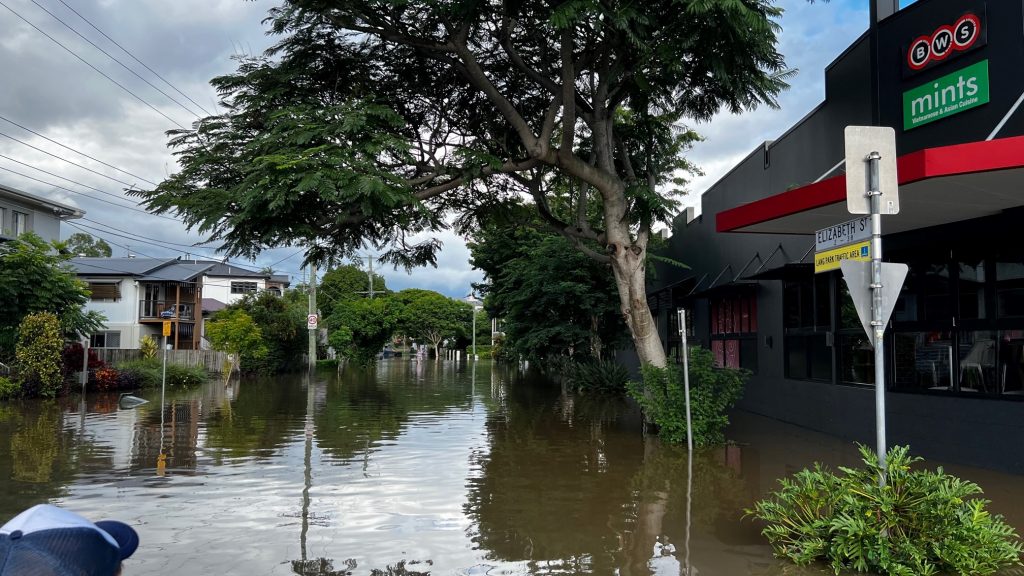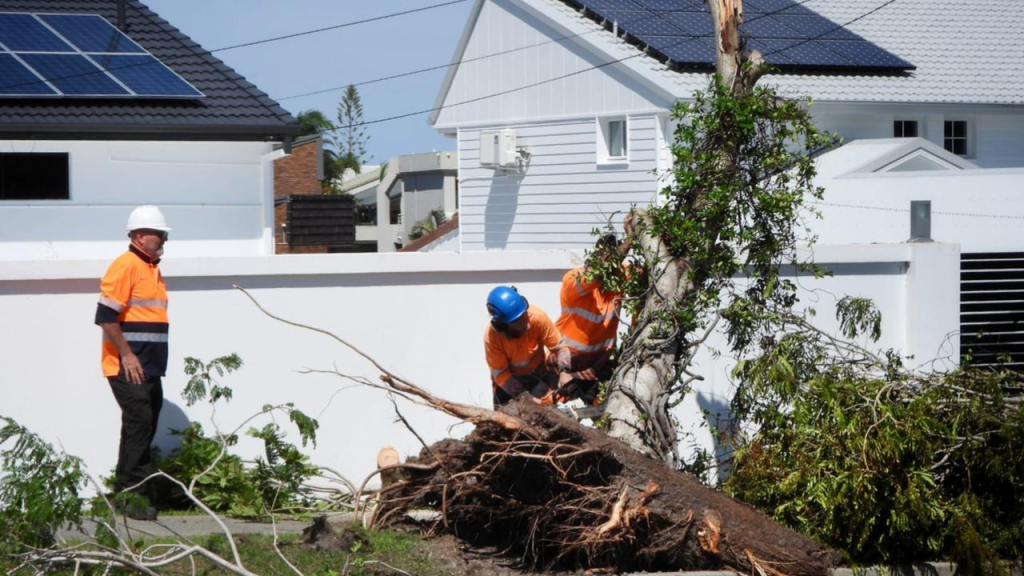As devastating rains continue in Queensland and New South Wales, small businesses find themselves facing another crisis and seeking support. There are several Queensland government flood relief and disaster grants now available to individuals and businesses affected.
This article details what is available now, noting some grants are being modified and added as more Local Government Areas (LGAs) are added to the list.
Personal Support
Which LGAs are eligible?
The Australian Government Disaster Recovery Payment and Disaster Recovery Allowance is currently available to residents in the following LGAs:
- Brisbane
- Fraser Coast
- Gladstone
- Gold Coast
- Gympie
- Ipswich
- Lockyer Valley
- Logan
- Moreton Bay
- Noosa
- North Burnett
- Redland
- Scenic Rim
- Somerset
- South Burnett
- Southern Downs
- Sunshine Coast
- Toowoomba
How much are the grants?
The Australian Government Disaster Recovery Payment is a one-off lump sum.
Eligible adults and children can receive $1,000 and $400, respectively.
This money could be available to you if you have been seriously injured, are the immediate family member of an Australian citizen or resident who is missing, or if there has been major damage to your home.
The Disaster Recovery Allowance is a separate payment for up to 13 weeks if you have lost income due to the Queensland February floods. It is equivalent to the JobSeeker Payment or Youth Allowance, depending on your circumstances. This allowance is taxable and subject to eligibility.
How to claim the Australian Government Disaster Recovery Payment
The Disaster Recovery Payment can be claimed online through Centrelink but check the full eligibility criteria on the Services Australia website.
If you need help, call Services Australia 180 22 66, between Monday to Friday from 8am to 7pm and on weekends between 10am and 4pm.
How to claim the Disaster Recovery Allowance
This grant is available if:
- You were 16 or older at the time of the floods
- Are an Australian resident or hold an eligible visa
- Work or live in an affected local government area
- Lost income as a direct result of the storms and floods
- Earned less than the average Australian weekly income – $1,737.10 per week – in the weeks after you had this income loss.
Couples can individually claim the payment. Young people aged 16 to 21 must be considered an independent by Services Australia to be eligible. Further eligibility criteria applies, so check the Services Australia website.
What other personal financial assistance is available?
The Queensland government has several additional grants for those who have been impacted by flooding.
Personal hardship grants of $180 per person to a maximum of $900 for a family of five or more are now available to flood-affected suburbs in 11 Queensland local government areas.
Those LGAs are:
- Fraser Coast
- Sunshine Coast
- Brisbane
- Gympie
- Ipswich
- Lockyer Valley
- Logan
- Moreton Bay
- Noosa
- North Burnett
- Somerset
Check the Queensland government website to confirm whether your suburb is included.
There are also multiple grants for low-income residents available, but ensure you check the suburb list above to confirm if these grants have been activated in your suburb. All of the below grants are subject to an income test. To qualify, your before-tax weekly income must be less than:
- $988 for an individual
- $1,367 for a couple
- $1,368 for a single parent with one child
- $1,694 for a couple with a child
For each additional child add a further $327 per week and for each dependent adult add $378 per week.
Essential household contents grant
If you are uninsured or can’t claim insurance, you may be able to apply for this grant to help you replace whitegoods, linen and other essential household items that may have been lost or damaged.
Grants of up to $1,765 for single adults and up to $5,300 for couples and families are available to tenants and owner-occupiers who meet all of these criteria:
- Live in a disaster affected area where this grant is activated
- Be uninsured or unable to claim insurance to replace or repair your household contents
- Qualify under the income test.
Structural assistance grant
If you are uninsured or can’t claim insurance, this grant can help you ensure your home is secured and safe after flooding.
Grants of up to $10,995 for single adults and up to $14,685 for couples/families are available and use the same income test listed above.
To be eligible, you must meet all of these criteria:
- Live in a disaster affected area where this grant is activated
- Own or be the mortgagee of the home, caravan or boat
- Have been living in the home, caravan or boat at the time of the disaster (it was your primary place of residence)
- Be uninsured or unable to claim insurance for the structural repairs
- Meet the income test.
The grant is not available for repairs to investment or holiday homes, rental properties, or caravans and boats that aren’t your primary home, or for damage done before the February floods.
Essential services, safety and reconnection grant
Many homeowners will have to wait for their homes to be cleared by a qualified electrician and other technicians before being allowed to switch their power back on.
If uninsured or unable to claim insurance, you can apply for up to $200 for a safety inspection to reconnect essential services such as electricity, gas, water, and sewerage or septic systems.
You may be able to apply for up to $4,200 for repairs such as electrical rewiring.
To be eligible, you must meet all of the following criteria:
- Live in a disaster affected area where this grant is activated
- Be the owner or mortgagee of the home
- Be uninsured or unable to claim insurance to replace or repair your essential service/s
- Qualify under the income test.
To apply for the grants listed above, visit the Community Recovery Portal or call 1800 173 349.
Business Support and Loans
Extraordinary Disaster Assistance Recovery Grants
Extraordinary Disaster Assistance Recovery Grants are available to assist directly impacted small businesses, primary producers and non-profits with the costs of clean-up and reinstatement.
Grants of up to $50,000 are available for affected small businesses following the South East Queensland Rainfall and Flooding to hire or purchase equipment and materials, clean up, remove debris, replace or repair damaged infrastructure and stock and other costs associated with the recovery process. Businesses should take photographs of the direct damage to accompany their application.
Applicants need to show they are an eligible small business, within the defined disaster area and demonstrate they have suffered direct impact from the disaster.
The maximum grant amount is $50,000 and is available through two applications:
- An initial amount of up to $15,000 is available to support an initial claim. Evidence of the direct damage such as photographs, quotations, tax invoices and official receipts is required.
- A subsequent amount of up to $35,000 is available to support subsequent claims for which full evidence of payment is required.
For more information about eligibility, required documentation and how the funding can be used, please visit the QRIDA website here.
Essential Working Capital Loans
Businesses can also access loans of up to $100,000 over up to 10 years to cover working capital expenses.
These expenses could include paying salaries or wages, paying rent or rates, paying creditors and buying good essential to running the business, such as fuel.
These loans must also be secured by a mortgage of land, or by another asset deemed satisfactory by the QRIDA.
Find out more about Essential Working Capital Loans here.
Freight subsidies for primary producers
Freight subsidy payments of up to $5,000 are available for eligible primary producers.
These grants may cover the costs of moving emergency fodder for livestock; moving building or fencing materials, or machinery and other equipment; and moving animals purchased to restock after a disaster.
Primary producers may also be able to access farm management grants, replanting or restocking grants, and recovery and resilience grants.
Read more about freight subsidies here, and find out more about support for primary producers here.
Employment entitlements during natural disasters and emergencies
Fairwork Australia has compiled a fact sheet on employment conditions during natural disasters and emergencies. As we know, natural disasters can cause devastation to communities and financial hardship for individuals and businesses.
An employee may have entitlements under their award or agreement that are relevant when they’re unable to attend work due to an emergency or natural disaster. Where no such entitlement exists, this fact sheet outlines the options available to employers and employees, depending on their circumstances. You can read and download it here.
As always, please take the time to read through this article and each of the links where relevant to you and / or your business. If you have any questions, please contact your Arabon accountant or call 1300 ARABON.






